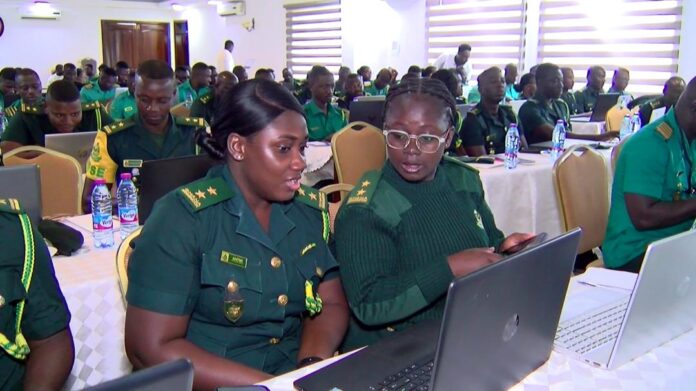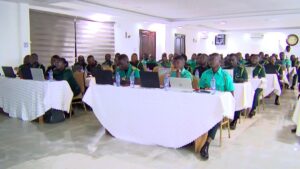The Ghana Immigration Service (GIS) has launched a Statistical Literacy Training to support accurate and timely data to track migration trends, report operational activities, and contribute to national policy development.
As an institution tasked with border security and migration management, the training will build capacity in statistical concepts, data collection methodologies, and basic analysis.
The training is targeted at officers from regional and border posts to build essential knowledge, ensuring they are equipped to gather data, assess and use it effectively.
“Without data we can’t plan properly, and per GIS mandate, we’re supposed to regulate the movements of foreigners in and out of the country as well as provide residency to foreigners living in the country,” stressed Anita Gyasi, Chief Superintendent and Officer in charge of the GIS Statistical Unit.
She emphasized the importance of data quality, stating that all data collected must be complete, accurate, reliable, and accessible. She urged the public to approach the appropriate desks within GIS for accurate, protected information.
The training is under the Improving Statistics in West Africa Project (HISWAP) which has the objective of ensuring statistics are not merely gathered, but fully understood, trusted, and applied to inform critical decision-making across institutions.
The Ghana Immigration Service (GIS) is a key player among the 13 implementing Ministries, Departments, and Agencies.
The project is funded by the World Bank and the Bank of Ghana, and coordinated by the Ghana Statistical Service, aimed at strengthening statistical systems across West Africa through the adoption of harmonised templates and methodologies.
Senior Statistician and Lead Facilitator for the training, Victor Boateng Owusu, reinforced the significance of the initiative.
“Development should be based on data and not emotions,” he asserted, pointing to the critical role data plays in policy and national progress.
Mr. Owusu explained that beyond collection, the focus is on ensuring data quality and interoperability across institutions like the Ghana Statistical Service, the National Identification Authority, and the Births and Deaths Registry.
“If they appreciate what data means, it makes it easy for data users and policy makers to value the information coming from this institution,” he noted.
By empowering officers with practical statistical tools and fostering a deeper understanding of the data they collect, HISWAP is laying a solid foundation for data-driven governance. The initiative is not only enhancing institutional capacity but also setting a regional standard for statistical integrity.
The project is deemed a transformative effort to embed statistics at the heart of national planning and public service. Through training, collaboration, and commitment, the Ghana Immigration Service is proving that informed decisions begin with empowered people and reliable data.





